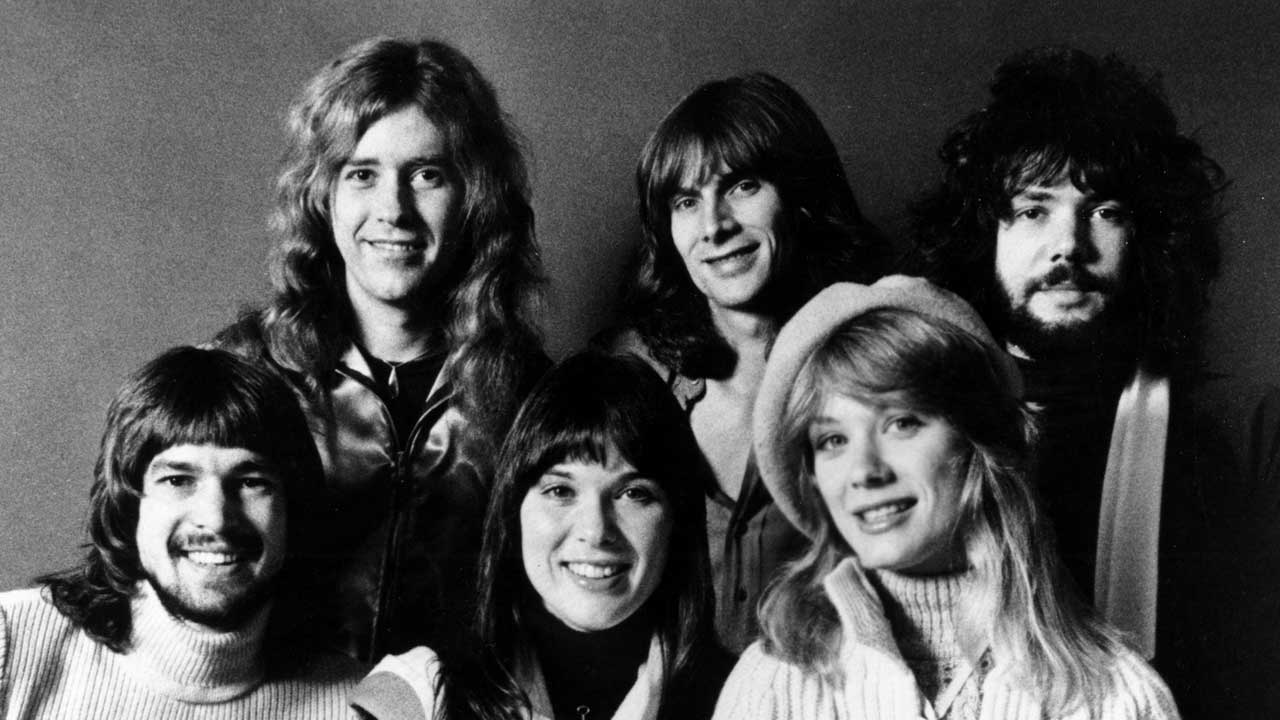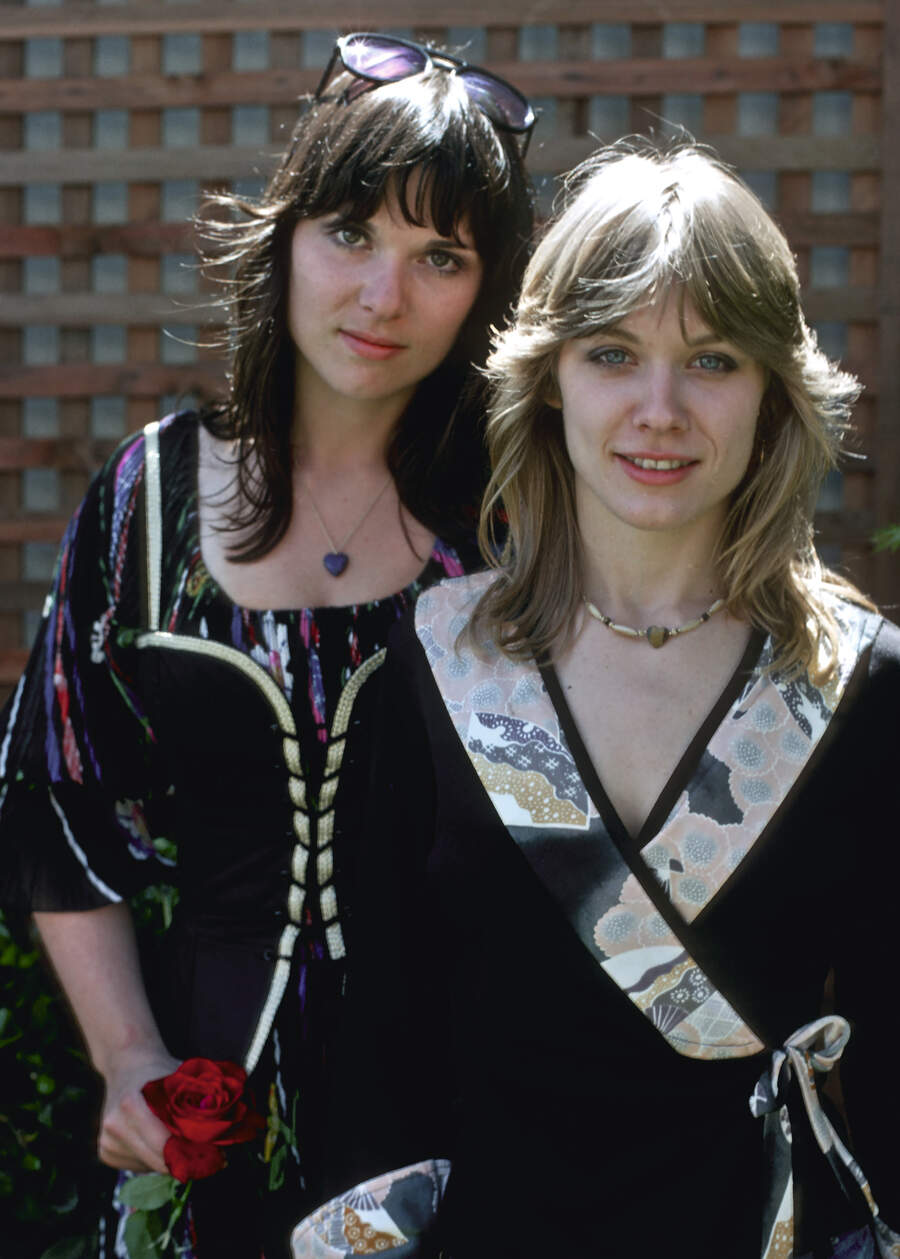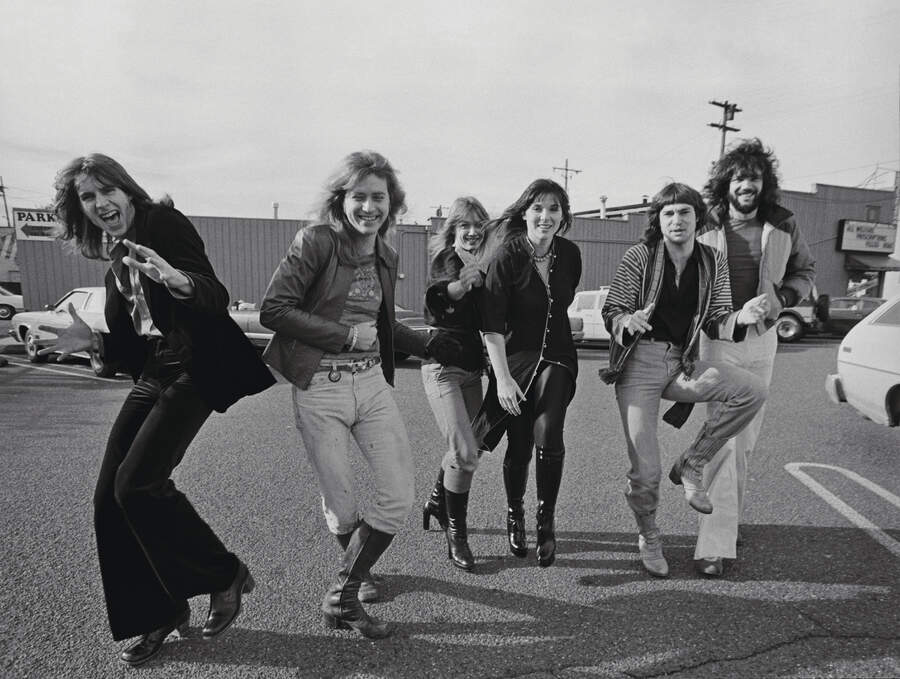"It sounds very pure and sweet. It's beautiful, like a flower child of an album": Heart's Ann and Nancy Wilson look back on the album that changed their lives
Fifty years ago, Heart’s Ann and Nancy Wilson gatecrashed the male-dominated, payola-fuelled rock scene

Select the newsletters you’d like to receive. Then, add your email to sign up.
You are now subscribed
Your newsletter sign-up was successful
Want to add more newsletters?

Every Friday
Louder
Louder’s weekly newsletter is jam-packed with the team’s personal highlights from the last seven days, including features, breaking news, reviews and tons of juicy exclusives from the world of alternative music.

Every Friday
Classic Rock
The Classic Rock newsletter is an essential read for the discerning rock fan. Every week we bring you the news, reviews and the very best features and interviews from our extensive archive. Written by rock fans for rock fans.

Every Friday
Metal Hammer
For the last four decades Metal Hammer has been the world’s greatest metal magazine. Created by metalheads for metalheads, ‘Hammer takes you behind the scenes, closer to the action, and nearer to the bands that you love the most.

Every Friday
Prog
The Prog newsletter brings you the very best of Prog Magazine and our website, every Friday. We'll deliver you the very latest news from the Prog universe, informative features and archive material from Prog’s impressive vault.
Winter, 1975, somewhere in the US heartland. Ann and Nancy Wilson are rumbling along in the back seat of a rental car. The view outside is flat and grey as they pass one truck-stop diner and petrol station after another. Behind the wheel is Shelly Siegel, their satin-jacketed promo guy from Mushroom Records.
Earlier that year, the tiny Vancouver label released Heart’s debut album Dreamboat Annie. Two singles from it, Crazy On You and Magic Man, are getting decent airplay on Canadian radio. The band have been gigging non-stop in clubs, and the album has already sold a respectable 30,000 copies. But across the border, the US has been slow to succumb to Heart’s charms.
“We had to physically go to the radio stations, Coal Miners Daughter-style,” singer Ann says. “Shelly would drive us from town to town - Cleveland, Detroit, Buffalo.”
“We’d get gussied up,” guitarist Nancy adds, “and it would be: ‘Hey, meet the pretty girls, here’s the record, play it, and let’s see if any phones light up!’ Then Shelly would say: ‘Okay, girls, go sit in the car, I’ll be out in half an hour.’”
That meant it was payola time.
“He would slip the disc jockey a bindle of blow and give him a number to call for a hooker later on,” Ann remembers. “That’s not very shocking, really. It had been going on for a long time. The important thing was that our song got on the air, then the listeners could make up their own minds whether they liked it.”
Market by market, listeners did like it. Radio play led to Heart opening arena shows for a stream of big acts, including Rod Stewart, ELO and ZZ Top (“Billy Gibbons said to me: ‘Hey, you play pretty good, for a girl,’” Nancy recalls). After 10 months of “a lot of shoe leather and hand-shaking”, Dreamboat Annie went gold in both Canada and the US, then, in short order, platinum.
Sign up below to get the latest from Classic Rock, plus exclusive special offers, direct to your inbox!
“We would have a picture taken for Billboard, holding up plaques, and it dawned on us: ‘Wow, we sold a million records!’” Nancy says. “It was really cool that, inch by inch, we’d managed to conquer the continent with our music.”
Talking today via Zoom from her home near Santa Rosa, Nancy, with pink-tinged hair and looking much younger than her 71 years, smiles and says: “But then, we were young people on fire! It felt like destiny. Like, there’s no way this is not going to work out for us, right?!”

Ann and Nancy Wilson were born in California and raised in Seattle, the second and third daughters of a retired Marine and his wife. Music was always playing in the house - “Ray Charles, Peggy Lee, classical,” says Ann. But, as with so many young Americans, it was The Beatles on The Ed Sullivan Show in 1964 that changed the lives of Ann and her younger sister. “Unlike most girls, we didn’t want to marry The Beatles, we wanted to be them,” says Nancy. They got their first instruments shortly after.
“We produced little shows in our garage, sold tickets, singing and playing guitars,” Nancy remembers. “We had bands together. Ann was the manager and I was the sidekick. Then eventually Ann went off to play in bands that I was too young to join.”
Following her boyfriend Michael Fisher, who’d dodged the Vietnam draft and moved to Canada, Ann settled in Vancouver, then joined an all-male band called Hocus Pocus, soon to be renamed Heart. Their lead guitarist was Fisher’s brother Roger, the bassist was Steve Fossen. In Spinal Tap tradition, several drummers came and went before Michael Derosier stayed put.
Meanwhile, Nancy was a freshman at Portland State college, “studying literature, writing poetry, playing folk clubs - stuff that would be helpful for me when I joined Ann’s band”.
Sometimes on weekends she would drive up to Vancouver to sit in with them. “We’d play mostly covers - Siberian Khatru, Highway Child and lots of Zeppelin.” Thanks to Ann’s Plant-like vocal prowess, the band earned the nickname ‘Little Led Zeppelin’. “I dipped my toes in the waters before I joined, a year and a half later,” Nancy says.

Behind those “bread and butter days” was an ambitious “five-year plan” hatched by Ann’s boyfriend.
“Michael was not afraid to think big about this little band,” Nancy says. “He was the love of Ann’s life. He was the Magic Man. He was our sound man, our manager, he designed our logo. But he was also a real slave driver. I became a better player thanks to Mike. He’d say: ‘I want you to learn The Clap by Steve Howe.’ A lot of work for a twenty-year-old to wrap my fingers around it. But I did. And that led to Silver Wheels, the acoustic introduction for Crazy On You.”
“By the time we had a few originals, we were hustling around to make demos,” Ann says. “We had our eyes fixed on the studio. The task was trying to get anyone at any record label to take us seriously.” They sent their tapes around, in Canada and America. “And we got told no, at least twice, everywhere. Our last resort was Mushroom, this little label in Vancouver.”
Nancy paints a picture of the band at the time: “We’d be playing at Oil Can Harry’s in Vancouver by night, then during the day writing songs to take to the studio. We were twenty-four-seven working musicians, writing in vans, living on sardines and loaves of bread, gathering the ten thousand hours it takes to be a good band.”
Mike Flicker, who was part of the Mushroom team and produced Dreamboat Annie (as well as all the albums in Heart’s imperial phase), remembers: “Ann and Nancy both had the goods before they walked in the door. At the same time, they didn’t have an ounce of ego. It wasn’t that they were little lambs. They definitely had ideas, but they were open to try anything.” Flicker likens his role to a film director: “I was there to capture their best performance, help them tell their stories. Our collaboration was the magic that formed the album.”

Amazingly, two of the first songs that Heart recorded in Vancouver’s 16-track Can-Base Studio became their signature hits: Crazy On You and Magic Man.
“Back then I would write down a poem or a piece of prose, then Nancy would set it to music,” Ann says of their process. “Crazy On You is about sexual awakening, but it’s really about taking a step back to look at the world. The culture was just standing on its ear and everything was overwhelmingly in trouble - Vietnam, the gas crisis. I was singing to my boyfriend, ‘Oh my god, what’s wrong with the world?’”
The band added Crazy On You and Magic Man (audiences loved its two-minute lead guitar freakout) to their live sets. “We’d built up a strong base in the Vancouver area,’ Ann says, “so they let us have a lot of freedom. As long as we did their beloved Led Zeppelin and Deep Purple covers, we could slip in a few originals. I think I finished writing some of the words to the songs on Dreamboat Annie in the clubs, because it’s always good to write out there in the middle of the action.”
“Ann was formulating her persona in the course of recording the album,” Nancy says. “You could hear bits of Elton John, a little Robert Plant, and this shy ballad singer too.”
Although Flicker still marvels at how Ann would nail her vocals in two takes, he also recalls giving her some valuable advice. “I said: ‘The song is going to tell you where, what, how to feel, what to do, and you’ll need to find that character that you’re going to play within the song - that’s where it should all be coming from.”
Although the singles cast Heart as a hard rock band, Dreamboat Annie is more nuanced and complex than that. Ballads How Deep It Goes and (Love Me Like Music) I’ll Be Your Song shimmer with an orchestral and melodic sophistication reminiscent of The Carpenters, while the sweeping, six-minute Soul Of The Sea has prog-like mood changes. Then there’s the title song, which appears in three distinct versions across the album – folk, country and breezy California pop.
“We were children of The Beatles and Elton John,” Flicker explains. “Sgt. Pepper and Goodbye Yellow Brick Road were the albums that influenced us. That’s why you couldn’t easily say Heart is a rock group or a pop group.”
“We wanted to be artsy and have a concept album,” Nancy explains. “In the mid-seventies, that was happening. Songs with lots of departures and recurring motifs. So on Dreamboat Annie, we were ready to take on the world and be impressive and brave. Honestly, we didn’t know if we’d ever have a chance to make another record, so we thought: ‘Let’s blow the whole gamut!’”
As Dreamboat Annie became a bona fide hit in the US, Heart realised that they might be outgrowing their label. Mushroom was small, and had cashflow issues. “Their slowness in paying us became increasingly frustrating,” Ann remembers. At the same time, major labels who’d previously turned the band down came a-courting. “We put them off out of our loyalty to Mushroom,” she says, “and ended up touring to make money.” They played more than 200 dates in the next year.
But their label loyalty was shaken during that tour. Mushroom took out a full-page ad in Rolling Stone, trumpeting the band’s success. Made to look like the front page of a sleazy tabloid, the headline read: ‘Exclusive – The Heartbreaking Story! Regional Hit Mushrooms Into Million Seller’. That was all fine and good. But further down the page, under a photo of Ann and Nancy, back to back, bare-shouldered, it said: ‘Heart’s Wilson Sisters Confess: “It Was Only Our First Time!”’
“The insinuation was really sexual, that we were lesbians,” says Nancy. “And of course we were not. So we were really offended.”
Who was responsible?
“One of the publicity people around the record company probably came up with it,” she sighs. When the sisters complained to promo man Siegel, who by then had developed a serious cocaine problem, and was taking credit for the band’s success, he brushed it off: “Don’t worry about it. Ink is ink!”
The fallout from the ad (Heart sued Mushroom for their unauthorised release of the unfinished second album, Magazine, then signed with Portrait/Epic) did result in one of their biggest hits.
Nancy: “At a party for Dreamboat Annie, this guy comes up to Ann and says: ‘How’s your lover, Annie?’ She goes: ‘Well Mike Fisher’s right over there. He’s fine.’ And he goes: ‘No, I mean your sister!’ Ann turned on her boot heel and huffed out of the room, then wrote the words for Barracuda up in her hotel room.”
Barracuda would be just one in a long line of hits ahead in Heart’s volatile 50-year career. They’ve survived lawsuits, drug problems, health scares, multiple personnel shake-ups (more than 40 members), changing trends, and even a falling out between the sisters that briefly resulted in separate versions of Heart (“Things like that will happen, but then they’ll get better, and we’ll love each other more,” Ann says). In 2025 they’re reunited and on tour, with a setlist that favours their wide-eyed beginnings, plus a little helping of Led Zeppelin covers.
“Dreamboat Annie was made before you could auto-tune or process, so you were really out there singing and performing,” says Ann. “It was a lot of work, but it’s great training to record that way, because then you can go out and reproduce what you’ve done in the studio.”
“The whole imprint that I have of the album now is innocence,” says Nancy. “The sound, the production, the way Ann sings. It sounds very pure and sweet. It’s beautiful, like a flower child of an album. We were young. As we used to joke: ‘Young and unburnt!’”
Bill DeMain is a correspondent for BBC Glasgow, a regular contributor to MOJO, Classic Rock and Mental Floss, and the author of six books, including the best-selling Sgt. Pepper At 50. He is also an acclaimed musician and songwriter who's written for artists including Marshall Crenshaw, Teddy Thompson and Kim Richey. His songs have appeared in TV shows such as Private Practice and Sons of Anarchy. In 2013, he started Walkin' Nashville, a music history tour that's been the #1 rated activity on Trip Advisor. An avid bird-watcher, he also makes bird cards and prints.
You must confirm your public display name before commenting
Please logout and then login again, you will then be prompted to enter your display name.



